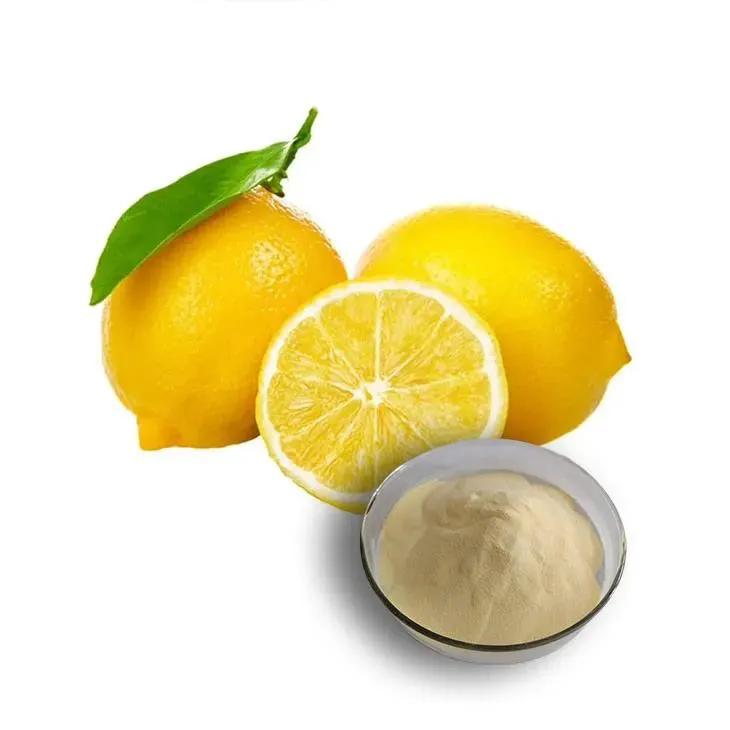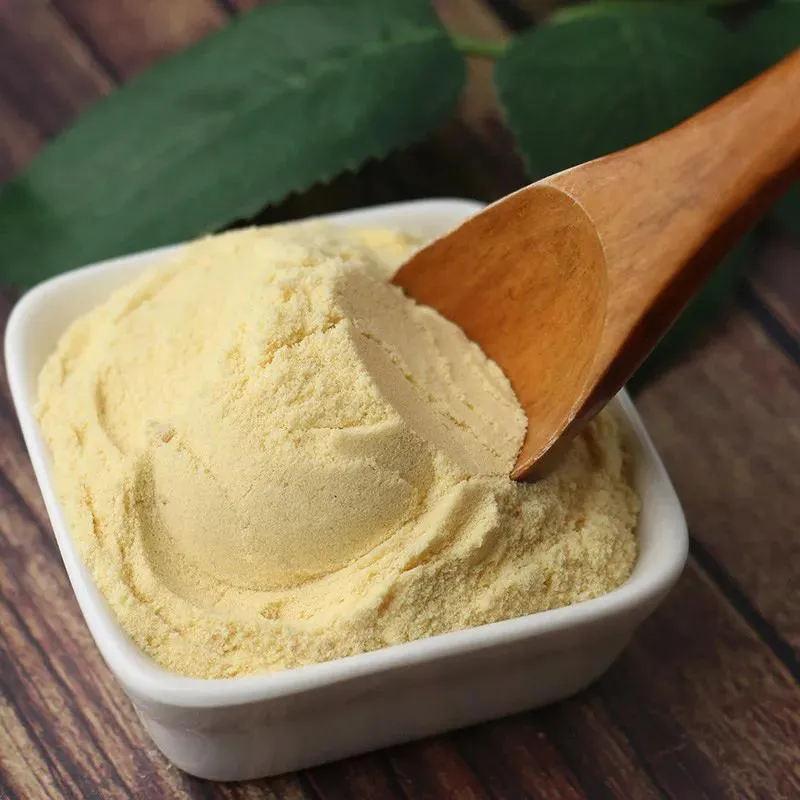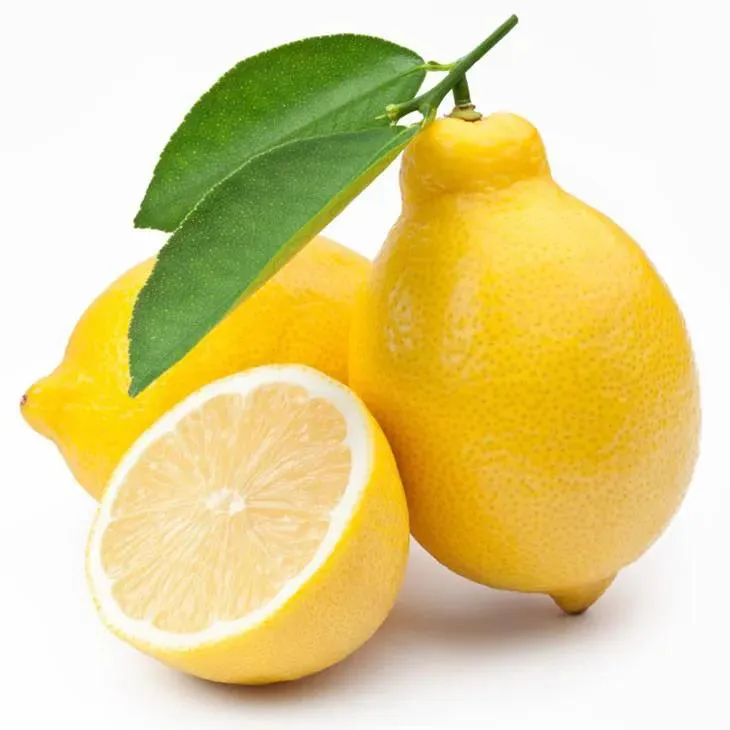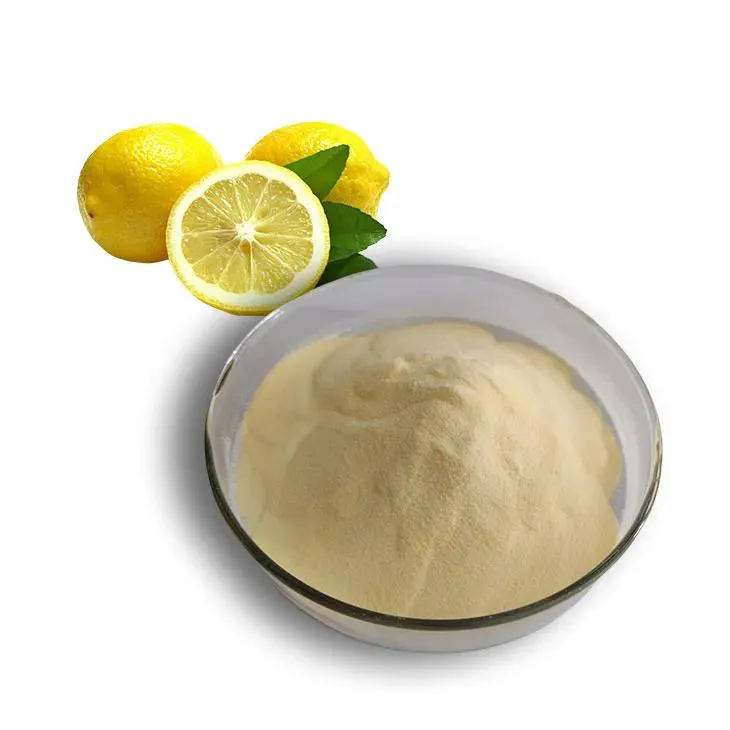- 0086-571-85302990
- sales@greenskybio.com
How do lemon juice powder manufacturers wholesale and customize products?
2024-12-31

1. Introduction
Lemon Juice Powder has become a popular product in various markets due to its convenience and versatility. For manufacturers, both wholesale and customization are important aspects of their business operations. Wholesale allows for large - scale distribution, reaching a wide range of customers. Customization, on the other hand, caters to the specific needs and preferences of different market segments. In this article, we will explore in detail how Lemon Juice Powder manufacturers can effectively carry out wholesale and customization of their products.

2. Wholesale of Lemon Juice Powder
2.1 Building a distribution network
Establishing relationships with wholesalers is a crucial first step. Wholesalers have existing networks and infrastructure that can help the lemon juice powder reach a broader market more quickly. Manufacturers need to find reliable wholesalers with a good reputation in the food and beverage industry. They should conduct thorough market research to identify potential wholesalers who have experience in handling similar products.
Another important aspect is working with distributors. Distributors often play a key role in getting the product to different geographical areas. They may have a more in - depth understanding of local markets and can help with marketing and distribution strategies tailored to specific regions. For example, a distributor in a coastal area may focus on promoting lemon juice powder as an ingredient for seafood dishes, while a distributor in a more inland area might target its use in refreshing beverages.
Direct relationships with large - scale retailers can also be highly beneficial. Retailers such as supermarkets and hypermarkets have a large customer base. By establishing direct partnerships with them, manufacturers can have more control over product placement, pricing, and promotional activities. However, dealing with large - scale retailers also comes with challenges, such as meeting their strict quality and packaging requirements, and being able to supply products in large quantities on a consistent basis.
2.2 Pricing strategies for wholesale
When setting wholesale prices, manufacturers need to consider several factors. Cost of production is a fundamental factor. This includes the cost of raw materials (lemons), processing, packaging, and overhead costs such as rent and utilities. Manufacturers must ensure that the wholesale price is high enough to cover these costs and generate a profit.
Market competition also plays a significant role. They need to research the prices of competing lemon juice powder products in the wholesale market. If their product offers unique features such as higher quality, organic ingredients, or a longer shelf - life, they may be able to set a slightly higher price. However, if the market is highly competitive, they may need to be more price - competitive to gain market share.
Volume discounts are a common strategy in wholesale. Offering discounts for larger orders can incentivize wholesalers and retailers to buy in bulk. For example, a manufacturer may offer a 5% discount for orders of 1000 units or more, and a 10% discount for orders of 5000 units or more. This not only helps to increase sales volume but also helps to build stronger relationships with customers.
2.3 Packaging for wholesale
In wholesale, packaging needs to be both practical and cost - effective. Bulk packaging is often used, such as large bags or drums for industrial customers or wholesalers who will further repackage the product. For example, a 25 - kg bag of lemon juice powder may be suitable for a food processing company that uses it as an ingredient in their products.
However, for products that will be sold directly to retailers, consumer - friendly packaging is also important. This may include smaller, resealable bags or containers with attractive labeling. The labeling should clearly display important information such as ingredients, nutritional facts, and usage instructions. It should also be compliant with relevant food labeling regulations.

3. Customization of lemon juice powder
3.1 Understanding different market segments
The health - conscious market is a significant segment. Consumers in this market are often looking for products that are low - in - sugar, additive - free, and rich in nutrients. Manufacturers can customize lemon juice powder for this market by using natural sweeteners like stevia instead of refined sugar, and by ensuring that no artificial colors, flavors, or preservatives are added. They can also highlight the health benefits of lemon juice powder, such as its high vitamin C content and antioxidant properties.
The food service industry is another important market segment. Restaurants, cafes, and catering companies may have specific requirements for lemon juice powder. For example, they may need a product with a stronger lemon flavor for use in making lemon - based sauces or dressings. Manufacturers can customize the product by adjusting the concentration of lemon flavor or by offering different flavor profiles, such as a more zesty or a more mellow lemon flavor.
The home baking market also has unique needs. Home bakers may prefer a lemon juice powder that is easy to incorporate into their recipes, with a fine texture that blends well. Manufacturers can develop a product specifically for this market, perhaps with a different particle size or with added ingredients to enhance its baking performance, such as a small amount of baking powder to make the end product fluffier.
3.2 Product formulation for customization
Adjusting the ingredient list is a key part of customization. As mentioned earlier, for the health - conscious market, changing the type of sweetener or eliminating additives is a common adjustment. In addition, manufacturers can also vary the type of lemon used. For example, using Meyer lemons for a more delicate and sweeter flavor profile, or using regular lemons for a more tart and traditional flavor.
Controlling the moisture content can also affect the product's characteristics. A lower moisture content may result in a longer shelf - life and a more concentrated flavor, which may be desirable for some market segments. On the other hand, a slightly higher moisture content may make the powder more pliable and easier to use in certain applications, such as in making dough for baked goods.
Adding functional ingredients is another way to customize. For the health - conscious market, adding ingredients like probiotics or fiber can enhance the product's health - promoting properties. For the food service industry, adding ingredients that improve the product's stability in different cooking conditions, such as emulsifiers, can be beneficial.
3.3 Packaging customization
For different market segments, packaging customization can also play an important role. For the health - conscious market, packaging can be designed to convey a sense of naturalness and health. This may include using earth - tone colors, natural - looking materials like kraft paper, and highlighting health - related claims on the label.
In the food service industry, packaging may need to be more practical and durable. For example, using larger, resealable containers that are easy to store and dispense in a commercial kitchen. The label may also need to include information relevant to food service professionals, such as serving size for large - scale recipes.
For the home baking market, packaging can be designed to be more appealing to home bakers. This may include using colorful and attractive labels with pictures of baked goods made with the lemon juice powder. Smaller, convenient - sized packages may also be more suitable for home use.

4. Quality control and certifications
4.1 Importance of quality control
Quality control is essential for both wholesale and custom product offerings. In the case of lemon juice powder, quality control starts from the raw materials. Manufacturers need to ensure that the lemons used are of high quality, free from pests and diseases, and are sourced from reliable suppliers. They should also have strict inspection procedures in place to reject any sub - standard lemons.
During the manufacturing process, quality control measures should be implemented at every stage. This includes monitoring the extraction process to ensure that the maximum amount of flavor and nutrients are retained in the powder. The drying process should also be carefully controlled to prevent over - drying or under - drying, which can affect the quality of the final product.
Final product inspection is crucial. The lemon juice powder should be tested for various parameters such as flavor, color, particle size, and microbiological safety. Any products that do not meet the quality standards should be rejected to prevent them from entering the market.
4.2 Certifications for lemon juice powder
Food safety certifications are of utmost importance. For example, obtaining certifications such as HACCP (Hazard Analysis and Critical Control Points) and ISO 22000 can demonstrate that the manufacturer has a robust food safety management system in place. These certifications are often required by wholesalers, retailers, and customers, especially in international markets.
Quality certifications can also enhance the product's marketability. Certifications like Good Manufacturing Practice (GMP) can show that the manufacturer adheres to high - quality manufacturing standards. For the health - conscious market, certifications such as organic or non - GMO (Genetically Modified Organism) can be a significant selling point.

5. Conclusion
Lemon juice powder manufacturers have a wide range of opportunities in the wholesale and customization markets. By building a strong distribution network, implementing effective pricing and packaging strategies for wholesale, understanding different market segments and customizing products accordingly, and maintaining high - quality control and obtaining relevant certifications, they can succeed in this competitive industry. These strategies not only help to meet the diverse needs of customers but also contribute to the long - term growth and sustainability of the business.
FAQ:
Question 1: What are the key factors in building a distribution network for lemon juice powder wholesale?
When building a distribution network for lemon juice powder wholesale, several key factors need to be considered. Firstly, market research is crucial to identify potential wholesalers, distributors, and large - scale retailers. Then, establishing good communication channels with these partners is essential. Offering competitive prices, reliable delivery, and quality products also help in building strong relationships. Additionally, providing marketing support to the partners can further enhance the distribution network.
Question 2: How can lemon juice powder manufacturers ensure quality control in wholesale?
To ensure quality control in wholesale, lemon juice powder manufacturers can implement several measures. They should start with strict raw material selection, ensuring that the lemons used are of high quality. During the manufacturing process, following good manufacturing practices (GMP) is vital. This includes proper hygiene, equipment maintenance, and process control. Regular quality inspections at different stages of production, from raw materials to the final product, should be carried out. Also, having a quality management system in place to document and trace any quality issues is necessary.
Question 3: What are the common customization requirements in the lemon juice powder market?
In the lemon juice powder market, common customization requirements vary. For the health - conscious market, as mentioned, low - sugar or additive - free options are popular. Some customers may require organic lemon juice powder, so manufacturers need to meet the relevant organic certification standards. There are also demands for different packaging sizes, from single - serve sachets for on - the - go use to larger containers for commercial or family use. Additionally, flavor customization, such as adding a hint of mint or ginger to the lemon juice powder, may also be a requirement in some cases.
Question 4: How do lemon juice powder manufacturers handle different packaging requirements in customization?
Lemon juice powder manufacturers handle different packaging requirements in customization by first understanding the needs of the customers. For small - quantity, on - the - go packaging like sachets, they need to invest in appropriate packaging machinery that can accurately measure and fill the powder. For larger containers, ensuring proper sealing and protection from moisture and air is important. They may also offer customized labeling options, including nutritional information, branding, and usage instructions. Working with reliable packaging suppliers is also key to meeting different packaging requirements.
Question 5: What certifications are important for lemon juice powder manufacturers in wholesale and customization?
For lemon juice powder manufacturers in wholesale and customization, several certifications are important. Quality certifications like ISO 9001 demonstrate that the company has a quality management system in place. For products related to food safety, certifications such as HACCP (Hazard Analysis and Critical Control Points) are crucial. If the product is marketed as organic, having an organic certification from a recognized body is essential. In some regions, there may also be specific health and safety certifications related to food products that manufacturers need to obtain.
Related literature
- The Wholesale Market Dynamics of Food Powders"
- "Customization in the Food Industry: Meeting Diverse Consumer Needs"
- "Quality Control in Powdered Beverage Manufacturing"
- ▶ Hesperidin
- ▶ citrus bioflavonoids
- ▶ plant extract
- ▶ lycopene
- ▶ Diosmin
- ▶ Grape seed extract
- ▶ Sea buckthorn Juice Powder
- ▶ Beetroot powder
- ▶ Hops Extract
- ▶ Artichoke Extract
- ▶ Reishi mushroom extract
- ▶ Astaxanthin
- ▶ Green Tea Extract
- ▶ Curcumin Extract
- ▶ Horse Chestnut Extract
- ▶ Other Problems
- ▶ Boswellia Serrata Extract
- ▶ Resveratrol Extract
- ▶ Marigold Extract
- ▶ Grape Leaf Extract
- ▶ blog3
- ▶ blog4
- ▶ blog5
-
Chasteberry Extract
2024-12-31
-
Hawthorn Extract
2024-12-31
-
Sea buckthorn Juice Powder
2024-12-31
-
Fenugreek Extract Powder
2024-12-31
-
Passionflower Extract
2024-12-31
-
Chia Seed Powder
2024-12-31
-
Apricot Powder
2024-12-31
-
Peppermint Extract Powder
2024-12-31
-
Senna Leaf Extract
2024-12-31
-
Bilberry Extract
2024-12-31





















